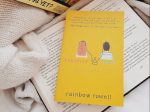Rom coms, Billie Eilish, most Halloween costumes — everything is “problematic” these days.
All of these things have sexist, racist, homophobic or other oppressive elements, but it’s far easier to call them problematic than to dig into what makes them an issue. We need to stop falling back on this empty phrase.
This term began its journey toward internet ubiquity in academia. It was used in academic journals as early as the ’70s to reassign racism from an individual to a structural issue. Rather than calling their subjects racist, authors pointed to the systems around them that led them to make racist, or problematic, statements. This allowed them to pardon their subjects and generally condemn racism without doing the work of exploring exactly what made those people problematic.
The once-popular Tumblr blog “Your Fave Is Problematic,” which lists “problematic shit your favorite celebrities have done,” later coined the phrase. The blog has since evolved into a repository for jokes about social justice warriors and politically correct culture. The word is currently used — and overused in all regions of the internet — to describe anything that is offensive or reinforces unjust beliefs. Much like the blog that catapulted the phrase into internet jargon, a person’s use of the word “problematic” indicates that they are overly concerned with political correctness to the point that they won’t say what’s truly offensive about something, out of fear they will say the wrong thing.
When we call things “problematic,” we’re really saying that they’re complicated and could be controversial. These are exactly the kinds of topics that deserve exploration. People typically don’t want to talk about offensive things to avoid saying something problematic and being “cancelled.” There is always the possibility that you will say something to offend others when you dig into sensitive topics, which is exactly why it is so important to do so. The most learning happens when you make mistakes. By throwing the blanket of “that’s problematic” over an issue, we prevent a potentially enlightening conversation from happening.
In internet culture, when a word is overused it becomes a joke and the significance is lost. “Fake news,” once a politicized phrase that people took seriously, has lost its power. “Woke” has taken on a completely new meaning after being overused by middle-class white people on Twitter. Problematic is no different. When too many things are labelled “problematic,” it starts to feel as if everything is a problem, and there are few things people can say without fear of being offensive. Instead of saying things that risk offending others and learning from mistakes, people will shy away from conversations from which they could learn about what is truly not okay. They may continue to think unjust thoughts and do offensive things, but they will not have learned why these things are wrong.
Is there another word we can use? Problematic is an easy catchall term to condemn all that is sexist, racist, ableist, classist, weightist, homophobic, anti-Christian, anti-Semitic and so on. Yet if it could mean any one of those things, it really means none of them. Vague words are fine to use once in a while, but when we start calling out people for being problematic all of the time, the word loses all meaning. If your goal in calling someone problematic is to change their behavior or call attention to an issue, it is much more effective to be specific about what they are doing wrong. The most learning happens when we make mistakes. Controversial conversations are difficult but they’re necessary for growth, so let’s stop using problematic and start learning from one another.

















